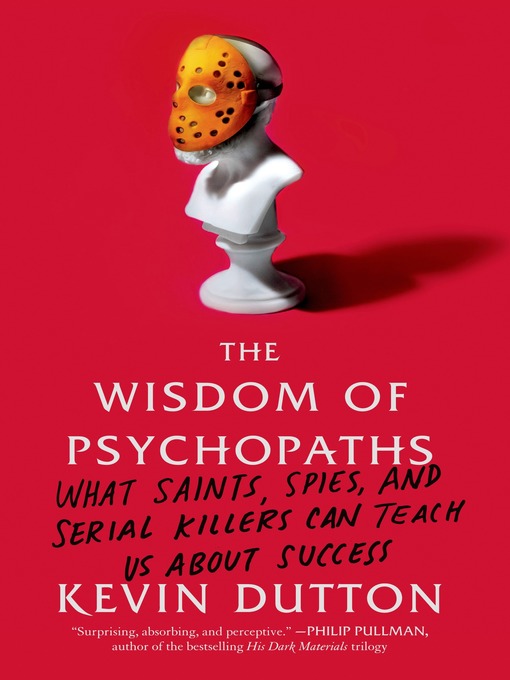
The Wisdom of Psychopaths
What Saints, Spies, and Serial Killers Can Teach Us About Success
کتاب های مرتبط
- اطلاعات
- نقد و بررسی
- دیدگاه کاربران
نقد و بررسی

August 20, 2012
Many of us harbor an inner psychopathâand perhaps those who don't, should, says Dutton (Split-Second Persuasion), a Cambridge University research psychologist. Through a series of studies and anecdotes, he demonstrates how for every psychopathic stigma there is a comparably compelling virtue: psychopaths often have a greater capacity for focusing, creativity, and even empathy and altruism. All of this information challenges the idea that psychopaths dwell exclusively at society's outskirts; indeed, Dutton finds psychopathic tendencies in everyone from saints to Secret Service agents to the fictional hero James Bond. Dutton is admirably capable of rendering complicated research into readable and engaging prose. Yet there are times when his repeated use of studiesâmost conducted in a university or laboratory settingâdetracts from his broader analysis of psychopaths within our society. And Dutton's definition of "psychopath" is a little too malleable, often used to refer to a collection of personality traits as opposed to a devastating disorder. We may all possess the potential for the pathology, but our psychopathic paths to successâhowever fascinatingâare still unclear. B&W illus.

September 15, 2012
Psychopaths who commit violent crimes are at one end of a spectrum that also includes solid citizens. That's the contention of Dutton (Split-Second Persuasion, 2010, etc.), a research psychologist at Cambridge. Psychopathic killers have the "consummate ability" to disguise their true nature, he writes, while "behind the facade--the brutal, brilliant disguise--beats the refrigerated heart of a ruthless, glacial predator." The capability to act under stress with cool determination is a characteristic they share with "surgeons, soldiers, spies, entrepreneurs [and] lawyers." Dutton hazards the guess that a small helping of one particular psychopathic quality can confer surprising benefits for society as well as the individual. The quality in question is the ability to detach from one's emotions in order to make purely rational decisions. Willingness to take calculated risks, coupled with a charming demeanor, can lead to success in the boardroom as well as the bedroom. The author distinguishes between the "hot empathy" of the I-feel-your-pain average personality and the "cold empathy" that sniffs out levers by which to manipulate people's vulnerabilities. He cites research using psychological profiling tests and fMRI brain scans, which establish a ranking of individuals by profession and personality type, to make his case that there is a "neuropsychological continuum." Dutton interviewed con men and killers in prison, top surgeons and a childhood friend who works for MI5, among others. He also submitted himself to an experiment that damped down a region of his brain linked to emotional response, leaving him with what he describes as a "subjective moral swagger" that he associates with a psychopathic mindset. Arguing that society today overemphasizes winner-take-all competitiveness, Dutton worries that this may push more people toward the psychopathic end of the spectrum and lead to a greater rate of violence. An enjoyable, breezy treatment of a provocative subject.
COPYRIGHT(2012) Kirkus Reviews, ALL RIGHTS RESERVED.

























دیدگاه کاربران